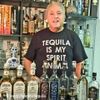ADDITIVES IN TEQUILA & MY PERSONAL LIST OF ADDITIVE-FREE TEQUILA BRANDS
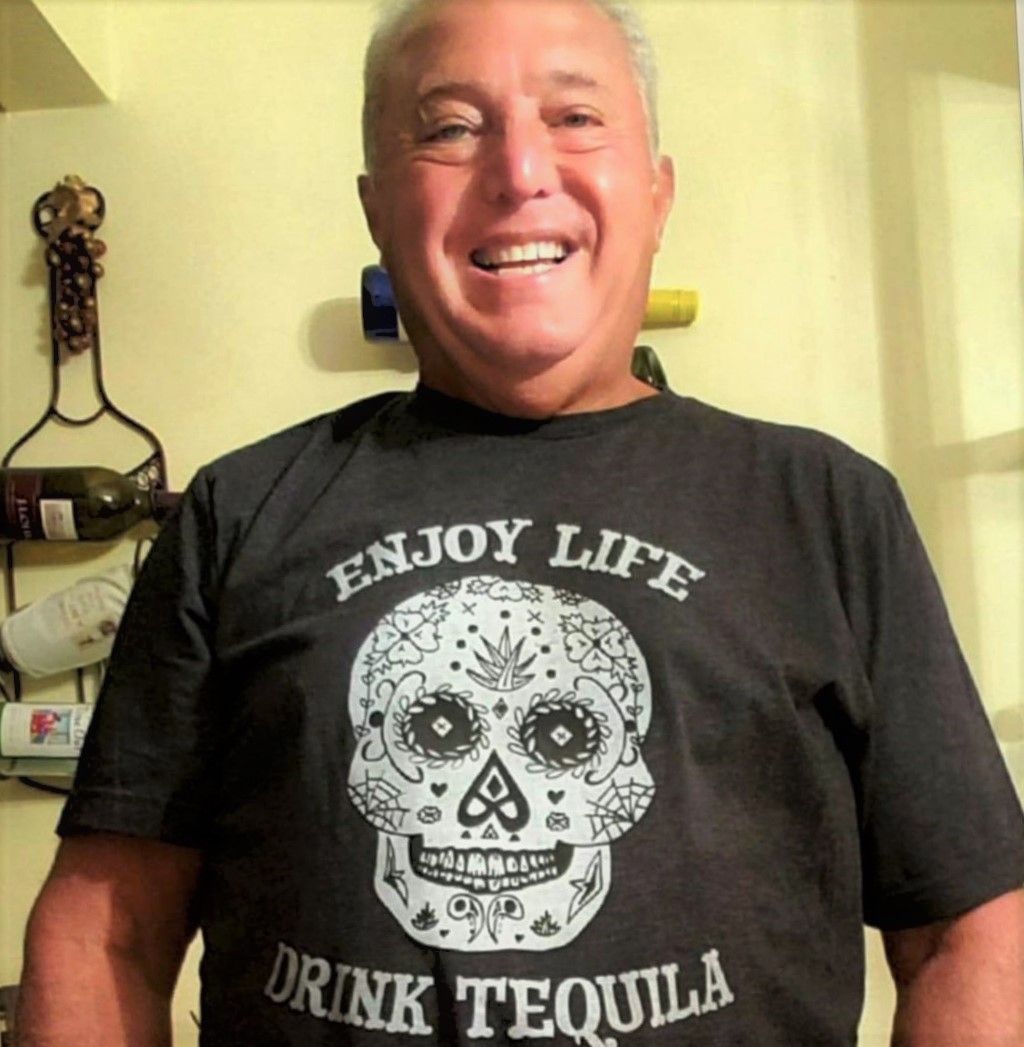
Because it is such an IMPORTANT part of Tequila today, here is just the 'Additive Section' and my Personal list of 'Additive-free brands' from my recent, longer and more detailed article titled- "AGING OF TEQUILA - BARREL TECHNIQUES, ADDITIVES, ADDITIVE-FREE BRANDS, AND A FEW OTHER THINGS TO KNOW."
A sneaky trick is to 'flavor' additives, which some brands endeavor to cover up, by simply naming them 'essences'. Essences or flavorings are still additives, and these can include vanilla or herbs used to alter or create a flavor. This is just artificial flavor, and another trick being presented to the tequila drinking community. Technically a barrel which has not been overused, will not need to have additives or essences. The reason caramel coloring is used, is to add a rich and darker color to make it appear that the aging was longer than it actually was. Often it is to 'balance' the batches in appearance, so they are the same color before blending. There are brands that have actually admitted to me that they use coloring to match each 'batch', so as to keep consistency between runs. This is called the rectification stage, before bottling. They blame us the consumer, as they say WE need to see the same color consistency each time we purchase a brand, and we would be 'alarmed' if it looked different. I don't agree, but if that's true, people need to start thinking differently. Blending of different barrels at the end before bottling, plays a major role in tequila making, and remember that although they use the barrels multiple times, they may also be blending with a fresh 'new' aged barrel of tequila as well, as this really is an art. Another tactic often used to fool the public into thinking that a particular tequila was aged longer or is richer, is to tint the bottle glass to a darkish or amber appearance. The tequila now will seem darker, and although it's still a dirty trick, if it has no additives in it, it’s still a lot better than paying extra money for a rested or aged tequila with fake colors and flavors added.
Coloring and other additives usually go in after aging and before bottling. Is it ever abused?... I would say so, and it's up to your eyes and your pallet to decide. It's funny because if you were, or still are a whiskey/scotch, bourbon, cognac, or brandy drinker, I feel you are more likely to 'accept' overly oaky aromas and flavors as normal, as you enjoy this profile. Others who are more true to agave spirits, may not like that profile and would prefer a more agave forward presence. After all, taste is a personal and a subjective thing, but I wonder as so many 'crossover' drinkers are coming to aged tequilas, if many of these consumers fail to recognize their preference is for the familiar and pleasant flavors associated with oak, and have no problem accepting this, even if it's artificially colored and flavored. I'm sure the brands are well aware of this, which only makes the problem worse. I'm guessing many of these drinkers do not detect the taste of agave or try to, and it seems to take a backseat to the flavor of oak. To compensate for a light hue, it seems a large number of suppliers are placing caramel color into their aged reposado tequila or anejo tequila, although I know a good amount of quality brands, that although impossible to prove, appear not to use any additives, including colorings. This 'cutting corners' can reduce the quality of the tequila. I do believe it's safe to say that products made by the quality brands mentioned below on my favorites list, seem to be completely additive free. Charring could add smoke, or add some wood quality, but when you can taste a heavy presence of aging, like strong caramel or vanilla, and the color is dark and rich after only a short aging process..... you need to wonder about additives.
ADDITIVES
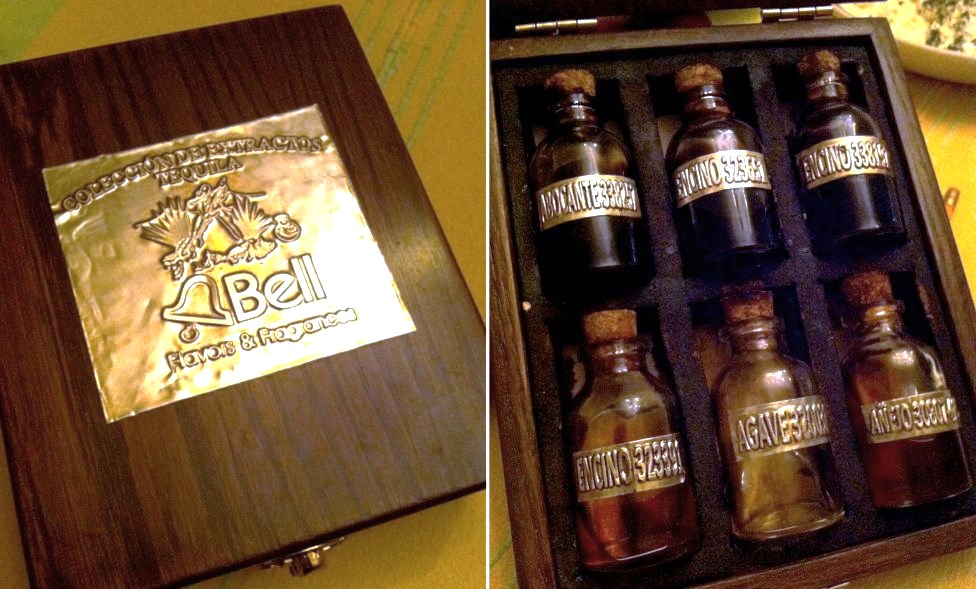
With most quality brands, especially ones in which the distillery owns, you may not have to worry as much about this next practice. Unfortunately you need to understand the reality of what often goes on with 'Rested' (Reposado), 'Aged' (Anejo) and 'Extra Aged' (XA) Tequilas, concerning ADDITIVES - (SEE Kit ABOVE). They are a reality, and remember it's legal, but only up to 1% of total volume, on additives of: caramel color, oak extract, glycerin and "sugar-based syrup" (like agave nectar), but not necessarily ONLY from agave. This is for Mixto junk as well as 100% agave. DO NOT get fooled by the 1% rule, as this may not sound like a lot, BUT IT IS!! and whole industries have grown from this use of additives. Bell Flavors & Fragrances (above) and Symrise Flavorings are just two companies supplying these additives. The pictures ABOVE and BELOW are courtesy of Grover Sanschagrin of 'Taste Tequila' whose excellent recent Video/Report is linked HERE- http://tastetequila.com/2017/the-lowdown-on-tequila-additives/
One percent today, with condensed additives are enough to change things. Of course you can taste the ones that use these natural additives- as they are too sweet, too candyish, too oily etc, and it's even easier to tell the ones that really 'go to town', and totally abuse this rule. My advice...if it doesn't taste natural or has an abnormal aroma or taste, has overly strong and unbalanced flavors, or is too sweet or has a sweet aftertaste, or is too dark in color for short aging, try one of the more trusted brands below, to see the difference. Some brands have obviously taken advantage of these powerful concentrated additives, colorings and flavorings to make their brands 'profile' which they have become known for, and don't appear to be stopping. This 'adulteration' let's the tequila taste like something it's not, and adding sweeteners for example, will 'mask' the use of young agave plants that would have low brix (sugar) levels. Adding additives and or color usually occurs towards the end of production before bottling, in the 'rectification'. This is a terribly misleading and sneaky trick, but sadly...a legal practice. The more tequilas you taste and really scrutinize, the easier it gets to pick out additive flavorings. The big problem is that additives aren't required to be disclosed, although I believe they should be, even if it's 1%. So when a brand says "we are 100% additive free" there is no way you can prove it. We need to let each other know, of the 'obvious offenders', even though it's legal up to this 1% limit. Maybe it's time brands realize we are fed up with additives, and overly sweetened tequila, which is sometimes referred to as "Americanized" Tequila, as well as fake coloring. It's simply sneaky in many ways, to alter or attempt to make 'better' an 'unbalanced' or 'rough' sub par spirit, or to make it look or taste more aged than it is. In other words.... to deceive us. We deserve to know, don't you think? As Taste Tequila reported, you don't need to use additives to make a profile, if you are being creative, as Sergio Mendoza does at Don Fulano. He uses different distillation equipment and different agaves grown at different altitudes, as an alternative, and as long as you have the additional equipment, use your head, and not take the easy way out, this is a perfect solution instead of using additives.
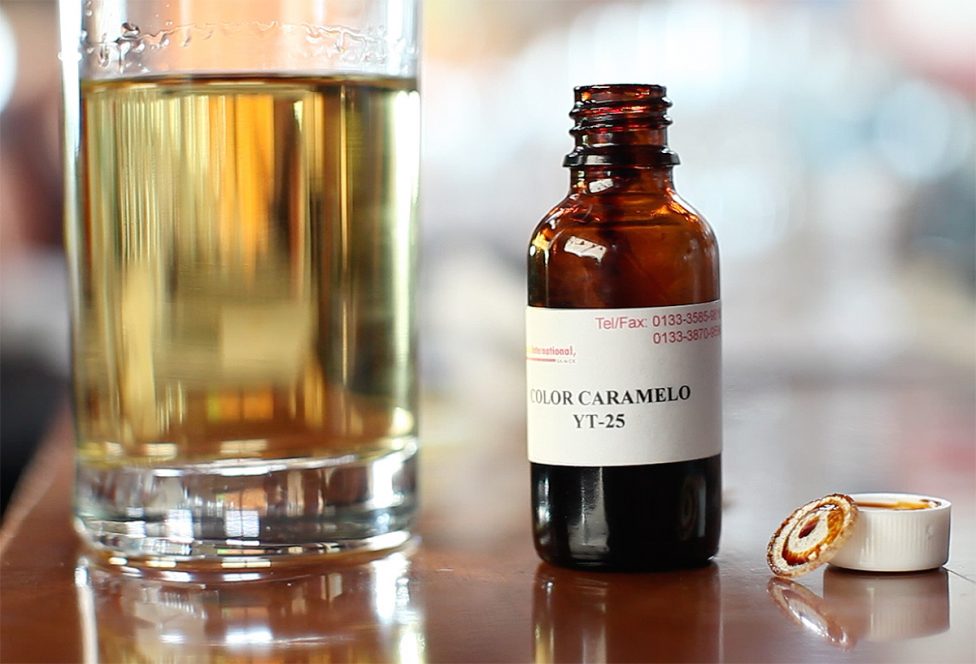
Additives can greatly change the color (SEE ABOVE- again thanks to Taste Tequila), making the appearance of longer aging, with caramel coloring. They can also use glycerin to make the mouthfeel 'rounder', slicker, thicker, oilier, sweeter and different altogether. They can change the taste, by making the tequila sweeter with sugar based syrups or "jarabes", which can also include flavors and aromas, and this isn't just agave syrup, but a number of sugar based products, like cane sugar, aspartame, corn syrup, sucralose (Splenda), and stevia. The 'jarabe' can also contain natural fruits and herbs to add even more aromas and flavors, too. The oak extract can add oak aromas and flavors found in oak barrels, helping to confuse you even further in thinking it was aged much longer than it was. Vanilla and Cocoa powder (chocolate) are also considered a type of oak extract, and although vanilla is not part of the 1% group, vanilla is something that can occur naturally in a barrel, but it is naturally 'subtle'. When you taste too much vanilla, and we call that a 'vanilla bomb', that often means extra vanilla extract powder was added. Certain producers like Felipe Camarena wouldn't dream of doing any of this, and Camarena told me "it's about credibility, not about promises from the producer". He is correct, anyone can say anything, but I will say, that after tasting all of Felipe's products and talking with him for years, he is one producer I trust solely on his word. As a matter of fact, he doesn't care if his aged tequilas look light or don't match each other in batches, and I love that. Guillermo Erickson Sauza (Fortaleza), or Felipe or Carlos Camarena are easier to believe, when they say they are additive free. Why? ....because as much as there are definitely trustworthy and talented owners like German Gonzalez and Adolfo Murillo, and I trust them just as much, the average brand that 'contracts', (meaning renting space at someones else's distillery), often have to go by practices at that distillery, and they can't be at the distillery 24/7. So who knows what a distillery may do to 'enhance' a contract brands juice, for their own convenience. I'm told that some distilleries will use additives because it's cheaper and faster to get things done, and who's to say if this is with or without the owners knowledge? Unless the distillery owns the brand, the brand may have no definite idea what's in their bottle, and they have no choice but to trust the distillery. I have been told that unless you get to see the CRT production logs, you'll never know if they have additives, and brands don't even have access to that information, it's something that only the distillery has. You have to train yourself to make an educated decision. Sometimes using french oak barrels may make you 'think' there are additives, because it can taster very sweet, even overly sweet.
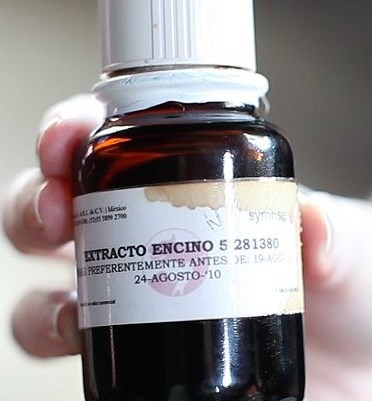
Frank Mendez of 'Gran Dovejo' said "we are 100% transparent which include being 100% additive free and the idea of creating GD actually came about due to the use of additives and misleading marketing practices found in the industry." Eduardo Orendain of 'Arette' said "we are 100% additive free, and we don't use caramel and yes we do have color consistency problems because of this, where some batches are lighter or darker than others." Sophie Decobecq of 'Calle 23' said we use no additives and as for caramel "this is why our color is not consistent, which is why my last anejo batch is much clearer, and I am fine with this." To be honest, I'm actually more than fine with all this myself, and I see this as a sign of integrity, and makes me appreciate these brands and respect them even more. Others like Jose Hermosillo of Casa Noble told me "we use no additives, that is why we do the kosher certification." So what do you think? do you agree with these brands? Other brands, some very popular did not answer me back on giving me their 'guarantee' and 'assurances' that no additives what so ever are used in their products. Although it can be hard to taste for sure as these people are pros, and can add them in strategically in a very subtle way, I will say that in my opinion you would be VERY surprised to know the huge percentage of brands that must be using some additive in their tequila. It's almost too easy to not do it, being legal to a certain extent, and too hard to ever get caught. YOU and only you will have to make that decision, to believe these brands by tasting and trusting them. Adolfo Murillo of 'Alquimia' said "I have always worked hard to stay true to the tradition of tequila and the way it was meant to be made, so if my bottles say 100% agave, it does not mean "99%, because the CRT says it's ok". Murillo also made a great point, saying he would lose his USDA Organic Certification, if he added any other ingredients, including color. Marcos Higareda of 'DesMaDre' said "we do not use ANY additives, never used and never will use caramel coloring, and it's all natural color, taste and aromas from natural barrel aging." German Gonzalez of t1 explained he is "free of additives" for t1 products as well as his 'Tears of Llorona' as well as David Suro, who as an early believer of tequila transparency, said at 'Siembra Spirits' "we don't use any additives or artificial flavors in any of our expressions". Guillermo Erickson Sauza of 'Fortaleza' told me "we don't add any additives, and we don't make tequila for anyone", and I was told that 'Siete Leguas' never uses any flavorings, colorings, or additives, as well as 'Tequila Caballito Cerrero' and San Matias. Others gave similar statements, while others could have..... but would not.
Keep in mind I only mention brands that make rested and aged expressions that I have personally tasted. Some brands I have mentioned or will mention, say they are 100% additive free, and although I do like and drink their products, I will not add them to my 'personal' list below, because I am not 100% sure. This list is small now, but I hope to add more brands if it is warranted. I respect people that want quality and are not cutting corners, and promise they will never use any additives. Good for them....and Good for us. Interestingly, another brand that is 100% additive-free told me "rarely will a distiller commit to never using color, because sometime in the future, there could be a day that some tequila comes off the barrels lighter, and distillers would rather add a couple drops of organic caramel coloring instead of jeopardizing a stock of tequila that has inconsistent color on the shelf." If that's all they ever did, I guess it's livable, although I'd prefer an 'off color' myself, and being completely additive free. We have to stop thinking a dark and rich color is always the real thing, and start thinking about realistic, clean, additive free tequila, regardless of the color or lack of color. Realize that caramel coloring is not used for adding sweet flavor, but more so, for a darker color to make the aged spirit 'look' more aged, or to change the color of batches to balance them out (consistency), in the stage called 'rectification'. Using a few drops of caramel coloring is one thing, but this additive problem seems to go much further, using these additives to cover up mistakes, a low quality product, or mask deficiencies in the final product. I'd rather have the 'natural color' after aging, and blend it that way with the other batches, without ANY colorings. Why balance a color at all?... who cares? I say keep it pure and natural. We're starting to expect this in our food, why shouldn't we expect this in our spirits?
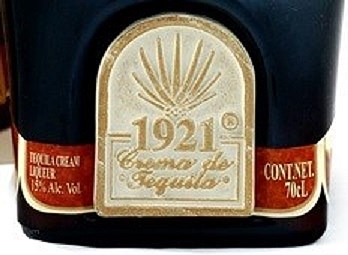
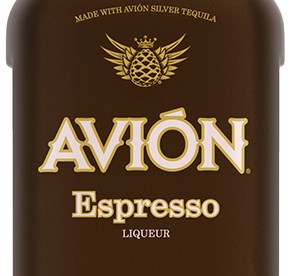
Keep in mind that technically, if you exceed the 1% total volume rule, it must be labeled as a 'licor' or a 'crema', like these (ABOVE), and that's the way it should be. The problem with additives as I see it, is even though it may be legal at 1%, it's also 'cheating' and unnecessary, and seems many brands don't act like they're using additives, as long as it's only the legal 1%. I assume these brands tell themselves that it's part of the 'tequila making procedure'. Of course they know they are using them though, as they actually have to put them in, but most will deny to me or anyone who asks them point blank, if they use additives. Remember they are saving time and money using them. What they probably say to themselves is, 'we don't exceed the 1% rule, so there is no need to discuss this at all', and as far as they are concerned ....they are NOT using additives. When 1% of total additives are used there is no requirement to tell the consumer, so I suppose for this reason, brands that put additives into their product will often make claims that they are not using any at all. Although this is perfectly legal, it is WRONG, and hopefully this will get cleared up soon on a future CRT ruling.
As you can't always believe Company Reps or Ambassadors who may not know for sure, I have personally contacted many Brand Owners, Executives or Master Distillers. According to 'THEM', these brands are 100% ADDITIVE FREE. This INCLUDES the legal 1% allowance, and I made that an important point to each brand. These brands are going 'on record' here, as being an ADDITIVE FREE TEQUILA BRAND, and I have contacted a wide variety of brands to ask if they are 100% additive free. I even contacted ones that some people feel are definite abusers. I contacted Jose Cuervo, Cazadores and Sauza to ask about any additives in their 100% agave tequilas to see what they'd say. I texted, emailed, filled out forms in some cases, and attempted to call to get a statement. I never got ANY response.... Surprise Surprise. The ones that have indicated to me that they 'only' use some caramel coloring (even with no flavoring) to avoid differences in color, will not be mentioned below, as that doesn't cut it here. It doesn't mean I don't like their product or that it doesn't taste fine, but coloring is an additive.... what's not to understand? Herradura got back to me saying that they're 100% additive free including their El Jimador line of products. What do you think about that... do you agree? I mean Jimador is a diffuser product, so this is quite interesting and hard to believe for sure. Avion founder Ken Austin, said that Avion is 100% additive free, and cited the light color in the anejo. He said people have their opinions about Productos Finos de Agave, but he was clear that any sweet profile is strictly from very ripe agaves. Do you believe that? So what do people think about all these claims? Are they true, who can you believe? What does YOUR nose and taste tell YOU? Let's discuss it. It's up to you all to decide what to believe, and although brands can tell me things, it doesn't mean I believe them or that it makes my personal list of additive free brands. Again... it's YOU that decides this. I just want to give you some statements and some brand names to explore.
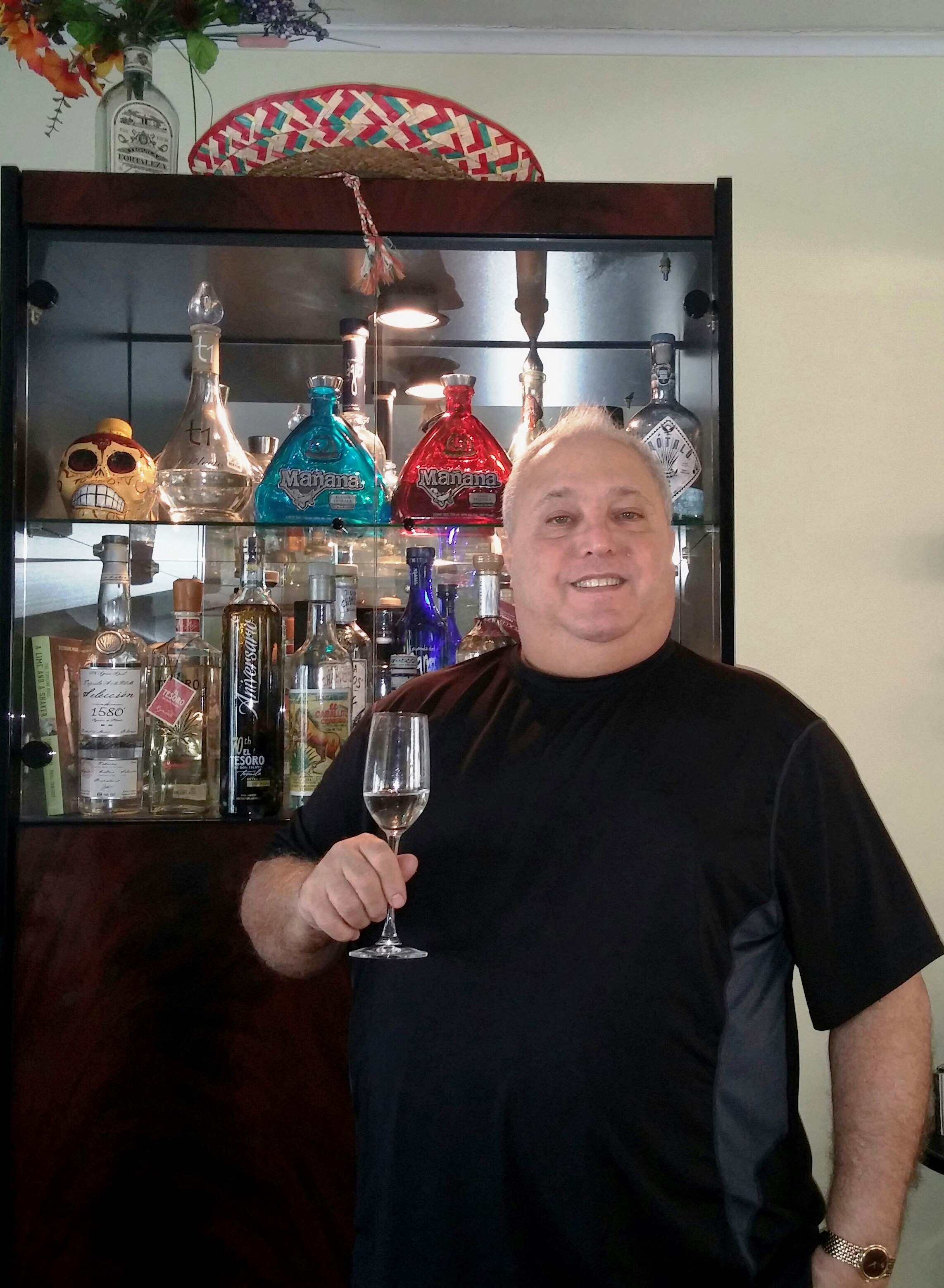
Although I want to trust all the brands, keep in mind that it's always possible that a distillery may do whatever it takes, so there can be no guarantee. I'm told it's possible a brand who contracts at a distillery may not even be aware if there are additives in their own tequila. Hard to believe, but I'm told it's very possible. Brands made at their own distillery can be easier to believe, when they proclaim themselves additive-free, as only the owner/distiller controls what goes in the juice. Although trusting people is always a gamble, we really do have some very knowledgeable contract-brand owners, that know exactly what is in their products, have integrity, and are way more involved than some others. Remember, as has been said before.... No brands will EVER admit to using additives, so understand that YOUR taste buds are the real test, and believing these assurances....are up to you. As I asked for their word on 100% additive free (including the legal 1%), let it be understood that misleading consumers is as far as I'm concerned, a reflection on these brands, and THEY are the ones that should look bad. I am just reporting what these brands are saying is the truth. All we can do is taste ourselves, to the best of our ability, and to believe these brands. This is a 'Hot Topic' and people will hold these brands accountable. So keep in mind the above mentioned brands that 'claim' to be 100% additive free may be just that, and most are high quality and fine tasting brands that I enjoy myself. After speaking with these brands and tasting all the tequilas mentioned, the list below are brands that passed my own personal test, and taste 100% additive free.
.
Long Island Lou Tequila's Personal Additive - Free Favorites List
G4 - NOM 1579
Pasote - NOM 1579
Terralta - NOM 1579
ArteNOM 1579- NOM's 1079, 1580, 1549, 1146, 1414, 1579, 1123
Torai - NOM 1579
Volans - NOM 1579
Don Vicente - NOM 1579
El Tesoro de Don Felipe - NOM 1139
Tapatio - NOM 1139
Excellia - NOM 1139
Tequila Ocho- NOMS 1474
Siembra Azul- NOM 1414
Siembra Valles- NOM 1123
Cascahuin- NOM 1123
San Matias Tahona- NOM 1103
Arete - NOM 1109
Fortaleza- NOM 1493
Siete Leguas- NOM 1120
DesMaDre- NOM 1519
Calle 23- NOM 1433
Don Fulano- NOM 1146
Tequila Caballito Cerrero- NOM 1114
Alquimia- NOM 1468
t1 and Tears of Llorona- NOM 1146
Oro de Lidia- NOM 1531
Gran Dovejo - NOM 1414
Mi Casa - NOM 1499
Suave - NOM 1522
Azunia - NOM 1426
Tequila Uno Por Favor - NOM 1479
Yeyo - NOM 1414
Suerte - NOM 1530
Tau - NOM 1414
De-Nada - NOM 1414
Patron - NOM 1492-(no additives but "Americanized")
Hermosa Casagave- NOM 1480
Atanasio - NOM 1599
El Tequileño - NOM 1108
LALO - NOM 1468
Mijenta - NOM 1499
Cazcanes - NOM 1599
Tonteo (blanco only)- NOM 1551
Buscadores NOM 1414
Montagave - NOM 1123
PM Spirits Project - NOM 1468
General Gorostieta - NOM 1414
*Curado - NOM -1474
Wild Common - NOM 1123
Tepozan - NOM 1584
Inspiro - NOM 1614
Crotolo - NOM 1509
Don Valente - NOM 1450
Number Juan - NOM 1531
Fuenteseca Cosecha - NOM 1146
So in the end I would say, do one of two things.
1- either stick with a producer who makes aged tequilas to YOUR liking, regardless if it's heavy caramel, vanilla, overly smooth and overly sweet, very dark and rich, oily and very oaky... without caring if they are obviously manipulated or not.
- OR -
2- If quality and purity is your concern, as it is for me, go with brands that are known for NOT using additives, or don't seem to care about dark and rich consistent colors, and don't taste overly sweet, artificial, or unnaturally rich. I personally could care less about the fake dark color or fake sweet taste... I want the Real Thing.
SEE OTHER GREAT EDUCATIONAL ARTICLES and HONEST TEQUILA REVIEWS along with REAL TOP TEQUILA LISTS- HERE ON- LONG ISLAND LOU TEQUILA - SEE all the tabs above, and PLEASE LIKE on Facebook- https://www.facebook.com/Long-Island-Lou-Tequila-641682619241422

